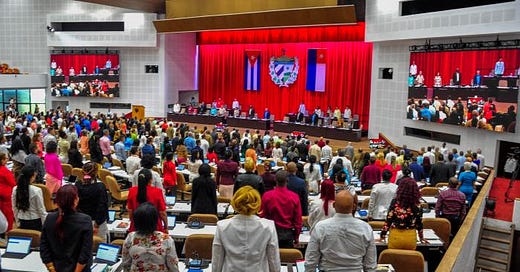Cuba’s National Assembly holds session
Correcting distortions in the economy due to noncompliance with the national plan
The National Assembly of People’s Power is the highest legal and political authority in Cuba, authorized by the Constitution to enact legislation, elect the President, approve the President’s cabinet, and elect the highest members of the judicial branch. Its 470 deputies are elected directly and indirectly by the people, in a two-stage process that includes direct multiple-candidate elections by the people of delegates to 168 municipal assemblies, which—with the participation of mass organizations of workers, women, farmers, students, and neighborhoods—nominate the deputies of the National Assembly, who subsequently are ratified by the people in the voting booth. The deputies of the National Assembly are elected to five-year terms, and the current legislature is the tenth that has been constituted since the system was established in 1976. Nearly 56% are women and 45% are blacks and mulattoes; both figures are disproportionately high. With an average age of 46 years, nearly 20…


